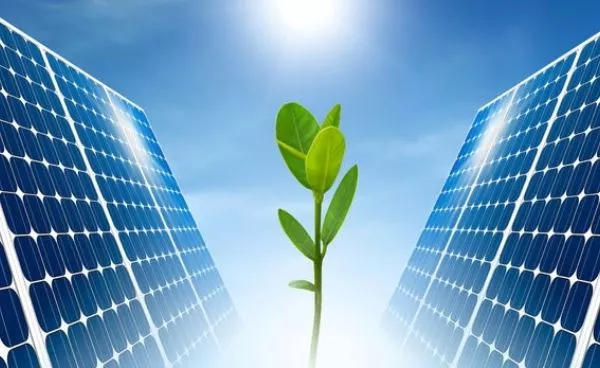Why Choose Simply Solar Illinois for Sustainable Energy Solutions?
Why Choose Simply Solar Illinois for Sustainable Energy Solutions?
Blog Article
Exactly How Solar Power Can Aid You Conserve Cash and Minimize Your Carbon Impact
The assimilation of solar energy right into your power profile presents a compelling chance for both monetary cost savings and ecological stewardship. By utilizing the sun's energy, homeowners can considerably lower their month-to-month energy expenses while additionally safeguarding versus the unpredictability of future energy expenses. The transition to solar adds to a significant reduction in carbon exhausts, aligning individual financing with wider eco-friendly goals. As various government rewards end up being readily available, the concern arises: just how can one effectively browse the initial investments and recurring advantages of solar innovation to make the most of both financial and ecological gains?
Recognizing Solar Energy Financial Savings
While the transition to solar power typically includes an initial investment, comprehending solar energy savings is vital for house owners and organizations alike. Solar power systems can substantially lower electrical power costs by harnessing the sun's power, translating into significant lasting financial benefits. By producing their very own electrical energy, customers minimize reliance on grid power, which undergoes fluctuating costs. These cost savings can accumulate gradually, frequently causing a rapid roi.
Moreover, solar energy systems might receive different monetary incentives, consisting of tax obligation credit scores and refunds, even more enhancing their cost-effectiveness. The schedule of internet metering enables users to market excess power back to the grid, creating an added profits stream. These elements contribute to the total cost savings related to solar power.

In addition to direct monetary cost savings, solar power supplies the included benefit of increasing residential property worth. Residences geared up with photovoltaic panels are commonly more eye-catching to purchasers, as they assure lower energy costs - Simply Solar Illinois. Understanding these elements is important for anybody considering solar energy, as it highlights not simply the possible monetary gains, however likewise the broader environmental and financial benefits of embracing renewable resource remedies
First Expenses vs. Long-Term Advantages
When assessing solar energy, it is essential to evaluate the initial costs versus the long-lasting benefits. The upfront financial investment for photovoltaic panels, setup, and associated devices can be considerable, usually varying from $15,000 to $30,000, relying on the system size and home energy needs. This first expenditure might deter some home owners; nonetheless, it is vital to consider the prospective savings with time.
When installed, solar power systems can significantly lower or even remove regular monthly electrical power costs, resulting in substantial long-lasting economic benefits. Researches indicate that home owners can save anywhere from $10,000 to $30,000 over the life-span of their solar system, commonly 25 years. Furthermore, several states use incentives, tax obligation credit reports, and rebates that can offset preliminary prices, making solar much more easily accessible.

Minimizing Your Carbon Footprint
Lowering your carbon footprint is a critical consideration in today's environmentally aware society, and adopting solar weblink energy is among the most reliable methods to accomplish this goal. Solar power is a clean, sustainable resource that considerably decreases reliance on nonrenewable fuel sources, which are major factors to greenhouse gas exhausts.

Additionally, the widespread fostering of solar technology urges the advancement of like it green work and supports developments in energy storage space and performance. The even more individuals and organizations purchase solar power, the better the cumulative decrease in carbon discharges, promoting a cleaner ambience for future generations.
Federal Government Rewards and Rebates
Adopting solar energy not just profits the setting however can likewise result in substantial financial savings, particularly with the availability of government rewards and discounts. Various federal, state, and neighborhood programs are designed to motivate homeowners and organizations to spend in solar energy systems, making the change extra cost effective.
Among one of the most popular rewards is the Federal Financial Investment Tax Credit (ITC), which permits solar system owners to deduct a considerable percent of the setup expenses from their federal taxes. This motivation has been pivotal in lowering the ahead of time costs related to solar power systems. Additionally, several states supply their very own tax obligation credits, grants, and refunds that can better enhance financial savings.
Furthermore, some neighborhood federal governments offer real estate tax exceptions for solar setups, making certain that homeowners do not encounter raised real estate tax as a result of their renewable resource investments. Utility companies might likewise offer motivations, consisting of net metering and feed-in tolls, which allow solar energy individuals to market excess power back to the grid.
Choosing the Right Planetary System
Choosing the appropriate planetary system is vital for taking full advantage of power effectiveness and financial benefits. The decision pivots on several aspects, including power needs, budget plan, and available area. House owners need to begin by evaluating their electrical power consumption to establish the Continued system size required for optimal performance.
Next, take into consideration the various kinds of solar technologies offered. Simply Solar Illinois. Photovoltaic Or Pv (PV) panels are the most typical, transforming sunlight directly right into electrical power, while solar thermal systems concentrate on heating water. Each kind has distinctive advantages relying on specific needs
Budget factors to consider are also extremely important. Initial installment expenses can differ considerably, so it's important to contrast quotes from multiple companies and check out funding alternatives. Government incentives and rebates can even more minimize the monetary problem, making planetary systems much more available.
Verdict
In recap, solar energy offers a feasible solution for attaining considerable price financial savings while concurrently reducing carbon exhausts. The initial investment, though considerable, yields substantial long-lasting financial advantages, with possible savings varying from $10,000 to $30,000 over 25 years. In addition, the environmental advantages of solar power add to sustainable practices essential for combating climate adjustment. Government rewards improve the feasibility of solar technology fostering, encouraging a change towards a cleaner, a lot more financially reliable power source.
Report this page